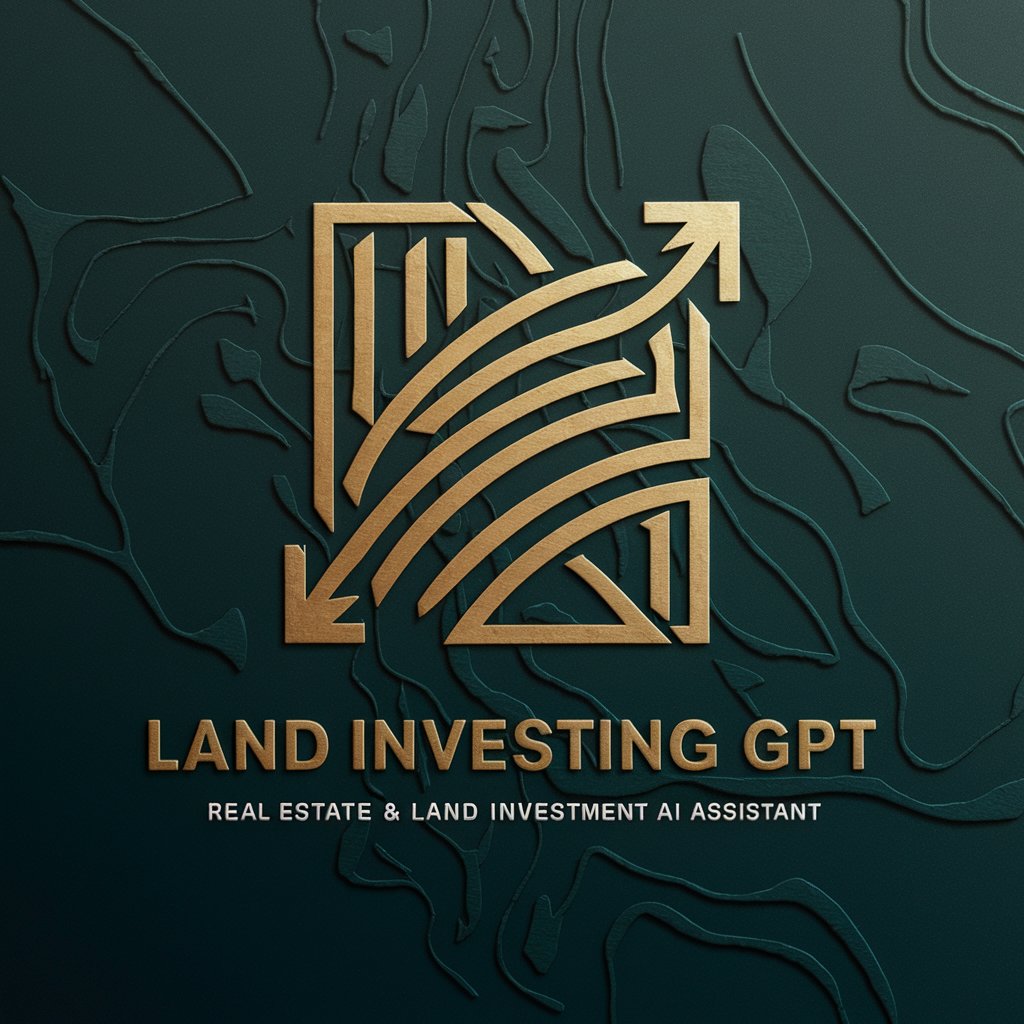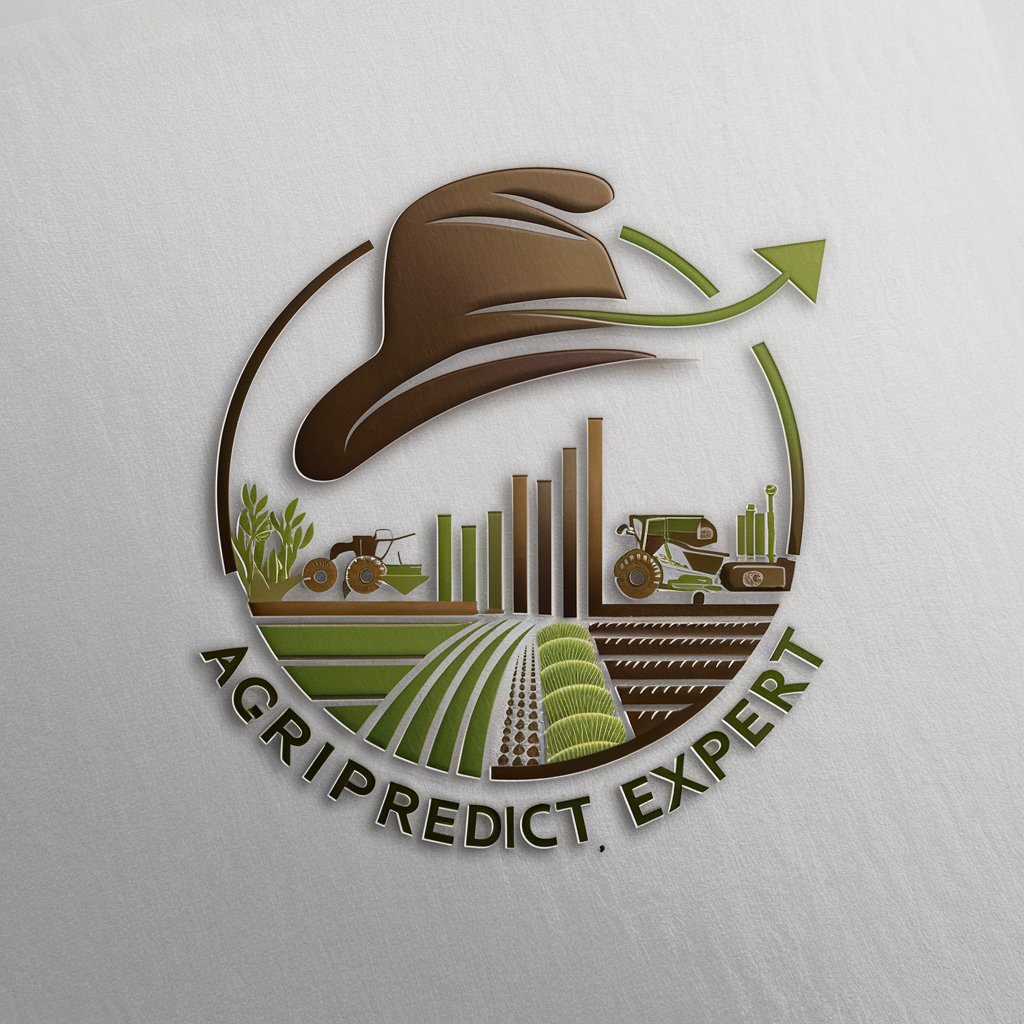Land Investing - Land Investment Insights

Welcome! I'm here to help with all your land investing questions.
Empowering your land investment journey with AI.
What are the key factors to consider when evaluating a potential land investment?
Can you explain the latest market trends in land investing?
What legal considerations should I be aware of when purchasing land?
How can I assess the value and potential of a piece of land?
Get Embed Code
Introduction to Land Investing
Land Investing refers to the practice of purchasing land with the intention of earning a return on the investment through leasing, resale, or development. Unlike other forms of real estate investment, which may involve buildings and structures, land investing focuses solely on the raw land itself. This type of investment can encompass a wide range of land types, including undeveloped, rural, agricultural, and urban plots. The core purpose of land investing is to capitalize on the appreciation of land value over time or to develop the land in a way that enhances its value for resale or leasing. For example, an investor might purchase undeveloped land in an area anticipated to experience growth and hold onto it until it can be sold at a profit or developed into residential or commercial properties. Another scenario might involve acquiring agricultural land for leasing to farmers, providing a steady income stream while awaiting potential long-term appreciation. Powered by ChatGPT-4o。

Main Functions of Land Investing
Capital Appreciation
Example
Purchasing undeveloped land in the path of urban expansion.
Scenario
An investor buys land in an area forecasted for significant residential and commercial development. Over time, as infrastructure improves and demand for space increases, the land's value rises, allowing the investor to sell at a profit.
Income Generation
Example
Leasing agricultural land to farmers or solar companies.
Scenario
Owning rural land and leasing it for agricultural use or to a company installing solar panels. This provides a regular income while the land potentially appreciates in value.
Strategic Development
Example
Developing a mixed-use residential and commercial project.
Scenario
Investing in urban or suburban land with the intention of developing it into a mixed-use project that combines residential, retail, and office spaces, thereby significantly increasing the land's value and generating income through sales or leases.
Land Banking
Example
Acquiring plots in emerging markets for long-term holding.
Scenario
Purchasing multiple parcels of land in areas expected to grow in the coming years. The strategy involves holding onto the land with minimal development, waiting for the right moment to sell to developers at a higher price.
Ideal Users of Land Investing Services
Individual Investors
People with disposable income looking to diversify their investment portfolio. They benefit from land investing by potentially securing long-term appreciation and income through strategic land purchases and development.
Real Estate Developers
Professionals or companies specializing in developing land into residential, commercial, or industrial projects. They use land investing to acquire strategic locations for future developments, benefiting from the value they add through construction and improvement.
Agricultural Investors
Individuals or entities interested in the agricultural sector, investing in farmland for its productive capacity and potential appreciation. They benefit from leasing the land to farmers or developing it for higher-value agricultural uses.
Institutional Investors
Funds, trusts, and other entities that invest in land as part of a broader investment strategy. They benefit from the stable, long-term returns that land can offer, especially when held as part of a diversified investment portfolio.

How to Use Land Investing
Start Your Journey
Initiate your land investing experience by visiting yeschat.ai for a complimentary trial, bypassing the need for logins and ChatGPT Plus subscriptions.
Explore Learning Resources
Familiarize yourself with land investing principles by accessing educational materials, tutorials, and webinars available on the platform.
Identify Investment Opportunities
Utilize the platform's tools and resources to research and identify promising land investment opportunities.
Analyze and Evaluate
Apply analytical tools provided by the platform to assess the viability, risks, and potential returns of identified land investments.
Engage with the Community
Leverage the community forums and networking opportunities to share insights, ask questions, and learn from experienced land investors.
Try other advanced and practical GPTs
Portugal Real Estate
Navigating Portuguese Real Estate with AI

Realty Ai
Empowering Real Estate Decisions with AI

Virtual Real Estate Assistant
Empowering Your Real Estate Decisions with AI

Land for Sale
Empowering Land Investment Decisions with AI

New York Property Advisor
Empowering Your New York Real Estate Decisions

Real Estate Title
Navigating Property Ownership with AI

Data Processing
Empowering insights with AI-driven data processing

客户流失趋势分析
AI-powered churn trend insights

AgriPredict Expert
Empowering Agriculture with AI Insights

Data Analysis Coach
Empowering Your Data Analysis Journey with AI

AutoBiz GPT
Empowering decisions with AI-driven insights

WebCraft Wizard
Crafting the future of web design, AI-powered.

Land Investing Q&A
What is Land Investing?
Land Investing refers to the process of purchasing land with the intent of earning a return on the investment through leasing, appreciation, or the sale of the land.
How does one assess the value of a land investment?
Assessing the value involves analyzing location, zoning laws, market trends, accessibility, and potential for future development. Due diligence is crucial to understand the land's true potential and limitations.
What are the risks associated with land investing?
Risks include liquidity issues, zoning and regulatory changes, environmental liabilities, market volatility, and challenges in assessing true value. Diversification and thorough research can mitigate these risks.
Can Land Investing be profitable?
Yes, it can be highly profitable, especially if the land is acquired in a strategic location with growth potential. However, profitability depends on several factors, including timing, development costs, and market demand.
What are the first steps for a beginner in Land Investing?
Beginners should start by educating themselves on the basics of real estate, understanding land valuation techniques, researching markets, and possibly consulting with experienced investors or professionals in the field.
